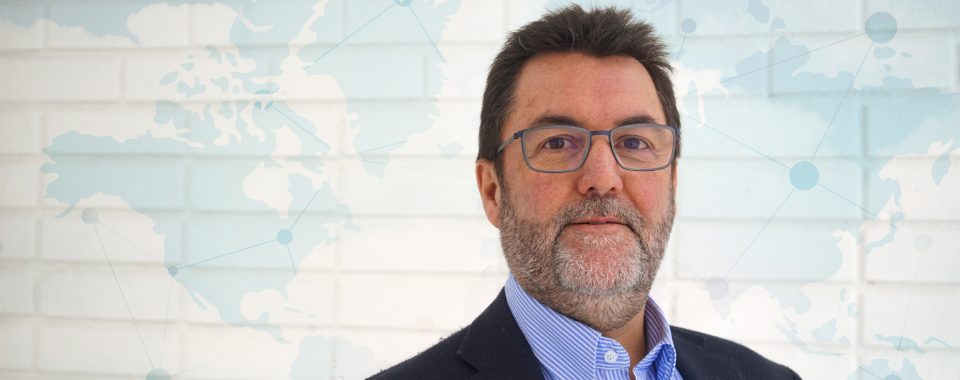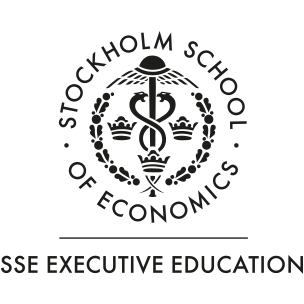
Preparing for international leadership through different perspectives and CSR
Cultural differences bring substantial challenges to companies when establishing internationally. Also, large companies tend to approach value-driven leadership and Corporate Social Responsibility (CSR) more, recognizing their role in and also impact on society. We met Jan Jacobs, who is one of the two Program directors of the FEM-program and discussed how we can find more dimensions in leadership today and how we can challenge the range of CSR both in discussion and in action.
Jan Jacobs from Belgium is himself a lot like the Consortium collaboration programs – a beneficial mix of practical business and academic work. Together he, the other Program director Pernilla Petrelius Karlberg, the team colleagues and the FEM-participant constitute the base for the FEM-program (FEM Executive management Program).
The programs are tailored for the participants
The Consortium collaboration programs are all about three-dimensional learning. Since the programs are half tailored and half open for large companies, they serve three important purposes.
- To learn from one’s own colleagues. The participants will meet and learn from others from the same company. This is to widen the perspectives on the company.
- To learn from participants from other companies. This is only possible if the group has established trust. This is something Jan and his colleagues continuously work with.
- To learn from the program itself, of course. It is built and tailored to fit the challenges and ambitions the companies have.
The importance of different perspectives and CSR
Diversity and cultural sensitivity are core concepts of the Consortium format. Successfully understanding and managing cultural differences can make or break companies when establishing internationally. Learning how to manage not only the differences within the organization, but everything that comes with establishing in new market areas, it is important to know about the context, both historically and socially. Also, working with values and corporate culture have become important for companies – not least as a result of expectations and requirements that emerge from younger generations of customers and employees. In some markets and countries, CSR is especially high on the agenda. India and South Africa are two countries Jan exemplifies with.
Integrate social responsibility in everyday work
The discussions around sustainability often start and end with environmental aspects, but there are also important economical and social issues involved. To Jan the social part means not leaving people and countries in development behind.
As a leader of an organization, one can increase the social responsibility just by committing to put it on the agenda more and integrate it in the everyday work. It doesn’t have to be huge projects, it can be small scale initiatives. The societal perspective is an important part of leadership education because large companies withhold a power that has a great impact on society.
A journey to catch several realities
In the Consortium programs, the participants travel to different countries to expand their minds and explore the market. The FEM-program implies a trip to India and some of the companies in the program have long time relations in India. The journey also exposes the participants to first-hand experiences from the reality of their Indian colleagues might face.
Jan explains how the group meets a variety of different speakers, both from the academic world and school of business but also practitioners who run large business companies. They also get together with cultural and historical speakers in the beginning of the week for the context and they visit companies, both Swedish and Indian ones.
A win-win situation
Since the beginning of the trips to India there has been one recurrent speaker, Dr Patricia Bidinger, who is an American but has been living in India for 42 years. Dr Patricia is running an NGO, the Institute for Rural Health Studies (IRHS) in Telangana, outside of Hyderabad.
IRHS runs two primary health care clinics in remote areas. The organization also provides preventative care through several initiatives. Their cervical cancer screening project based in the district hospitals diagnose pre-cancerous lesions and offers treatment.
Dr Patricia is in the FEM-program because of what Jan calls ‘the other side of the coin’, he explains.
“Dr Patricia’s whole arrangement is very impressive, and she is both brilliant and pragmatic. For her, being part of the FEM-program enables her to get fundraising and us to get important perspectives. It truly is a win-win situation.”
The collaboration with IRHS will continue
As a token of appreciation Stockholm School of Economics Executive Education will as of this year make donations to Dr Patricia’s found in the name of the institutions that welcome the FEM group for study visits or in the names of the many program guests.
And the collaboration with IRHS will continue. Jan and his wife are personally engaged in the project, helping out with communications and other aspects, occasionally. In response to the question of why they have decided to also help out in person Jan explains it with a quote about India:
“They say the first time you go to India you get shocked; the second time you will fall in love and the third time you don’t want to leave.”
About Jan Jacobs
Jan Jacobs from Belgium has been engaged in Stockholm School of Economics Executive Education about 15 years. With degrees in Law and Marketing and 20 years of working with companies around the world, he started his own company in business models and became a speaker in programs at SSE Executive Education. His expert areas are Innovation and Business models and today he is the Program director of some of the programs and the Consortium program FEM is one of them.
About his personal engagement in the Institute for Rural Health Studies (IRHS)
Jan says he and his wife have been involved in helping the clinics with their communication and several websites and stayed there for some time last year. They still do charity work for them and stay in touch.


